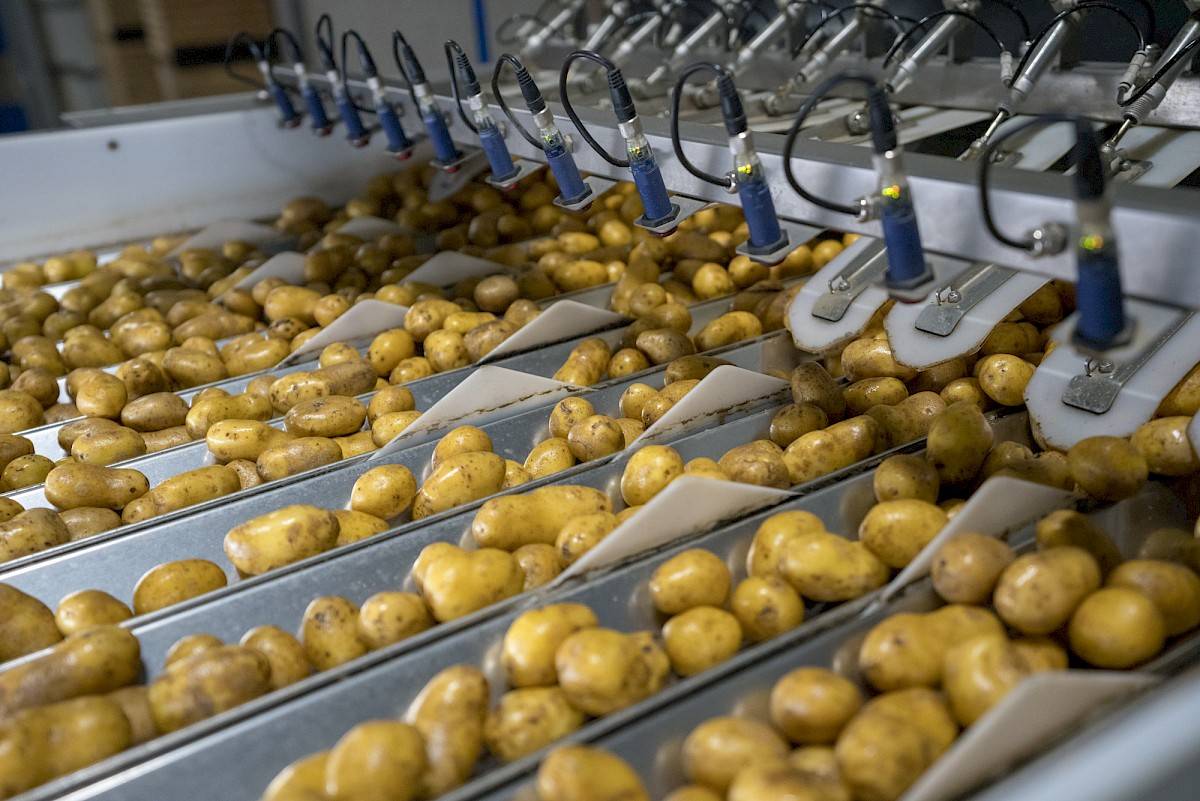McDonald’s is struggling with a shortage of fries in Japan and is currently unable to serve large portions to customers. Shortages are also reported in other countries at various fast food chains. In our country we will not be without it for the time being, but the well-filled order books at the processors indicate a favorable market mood and absenteeism due to corona ensures that they are on their toes.

- This is not the first time that Japan has experienced fragilities in its potato supply chain.
- In December 2014, McDonald’s suspended the sale of its medium and large french fries, serving only small portions, at a time when U.S. West Coast port labor-management negotiations were prolonged, delaying the handling of cargo. KFC Holdings Japan was also forced to suspend sales of french fries in January 2015.
Whether a shortage on the market leads to better prices? “I learned from my predecessor never to make statements about the price in the future,” says Belgapom director Christophe Vermeulen with a wink. He is responding to a shortage of fries that would exist worldwide. namely messages from fast food chains that run out of fries.
For example, shortly before Christmas, McDonald’s switched to a ration system in which it only serves customers small portions of fries. In addition, an emergency stock of 1,000 tons of frozen chips was flown in by plane. Kentucky Fried Chicken (KFC) faces the same problems in the land of the rising sun. McDonald’s blames this on flooding in southwestern Canada that disrupts supplies from the port of Vancouver.
The American fast food chain JG Melon is also said to be facing supply problems in New York and the Lay’s crisps brand is difficult to obtain in South Africa due to potato shortages.
“Corona creates a perfect storm of which you can see the impact worldwide.– Filip Wallays – CEO of Agristo
Logistics process confused by corona
Vermeulen emphasizes that there is no shortage, although there may be more shortages in some parts of the world due to poor potato yields. “The problems seem to have more to do with supplies. This one is quite confused by corona,” he guesses at the statement. “We certainly don’t have a shortage of potatoes in Belgium. Despite the humidity, this year was a good year.”

In Belgium, however, the corona situation keeps the sector in its grip. “There is currently a good demand for chips and processors have filled their order books well. This time of the year is traditionally a busy time,” said Vermeulen, who states that processors have difficulties processing orders. “As standard, there is a difficult work situation, but due to absenteeism due to corona, processors are currently finding it difficult to complete the work.”
Filip Wallays, the CEO of chip processor Agristo, agrees in De Tijd . “Corona has also created a difficult situation for us, including in terms of personnel. Because so many people are sick or in quarantine, it is difficult to achieve a full occupancy. Corona creates a perfect storm of which you can see the impact worldwide.”
Wallays states in the business magazine that the potato shortage will have an impact on the prices of products. Despite the higher prices that potato processors may be facing, higher margins are certainly not for the time being. “The potato price itself is still reasonable, even though it is now about 20 percent above the five-year average. But we cannot fully calculate the increased prices of production, logistics and energy.”






